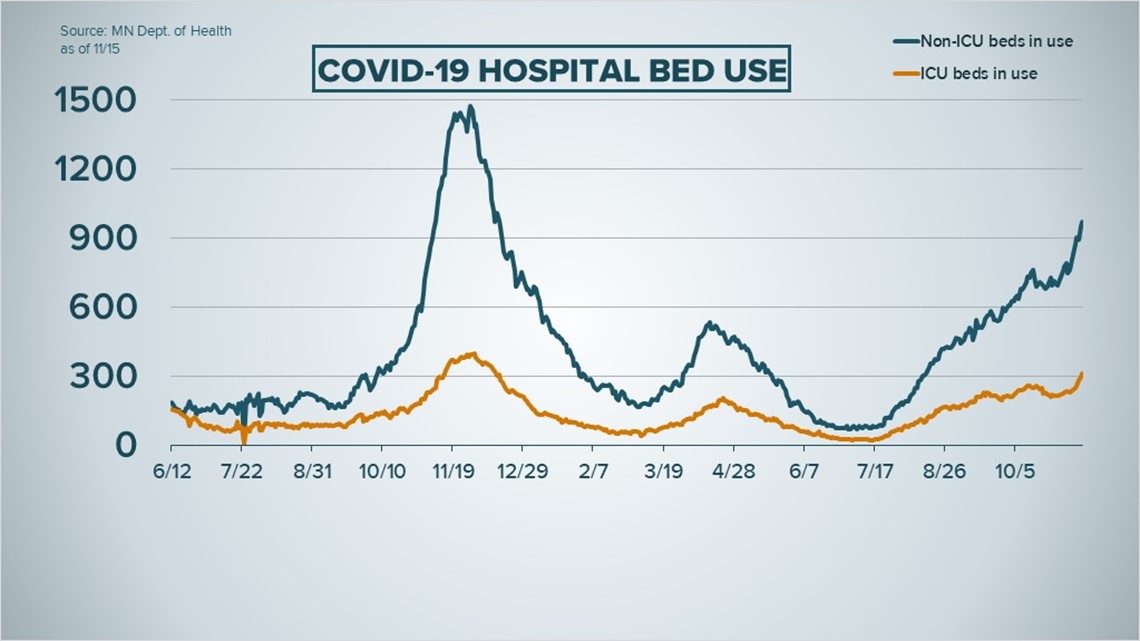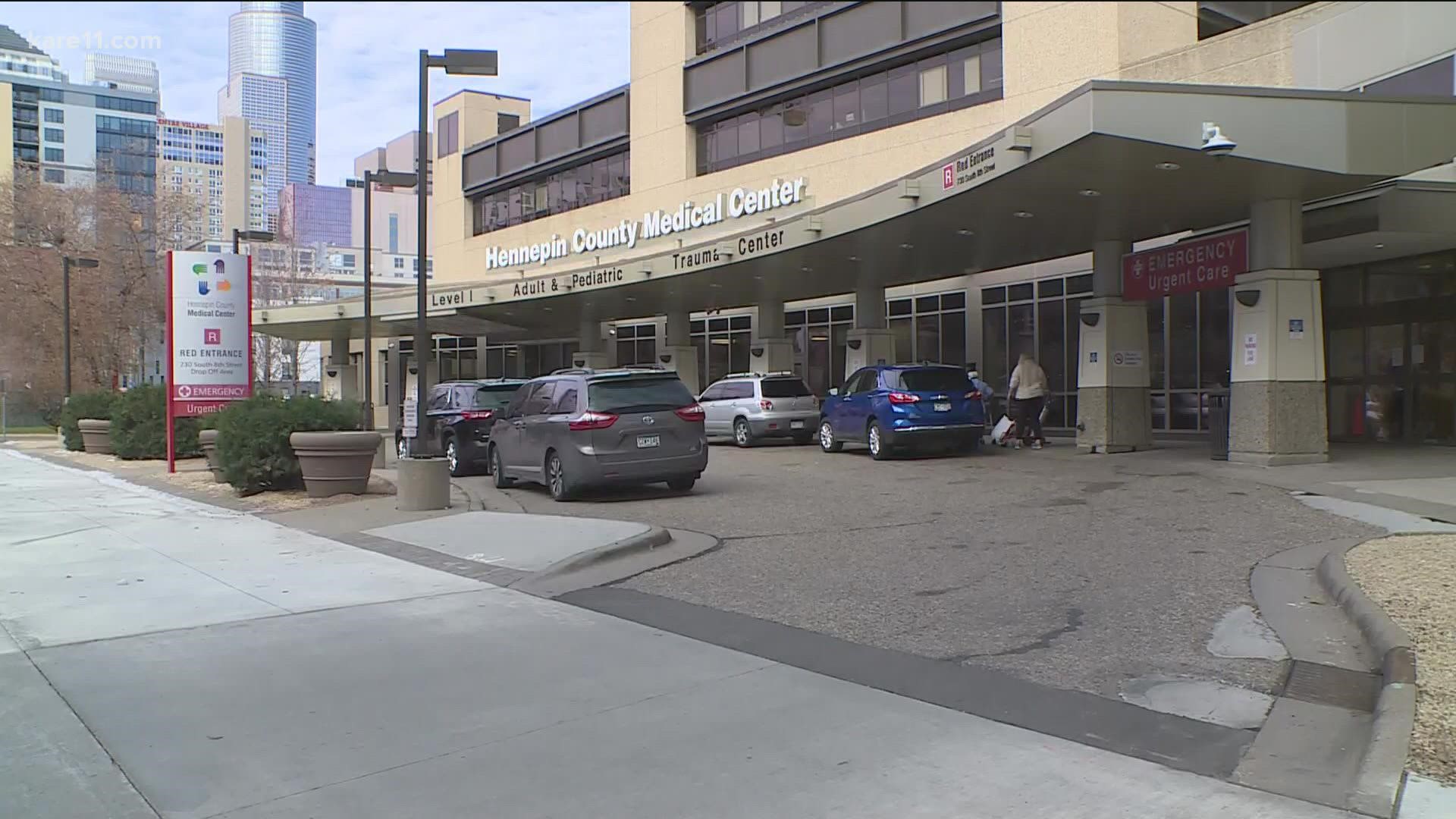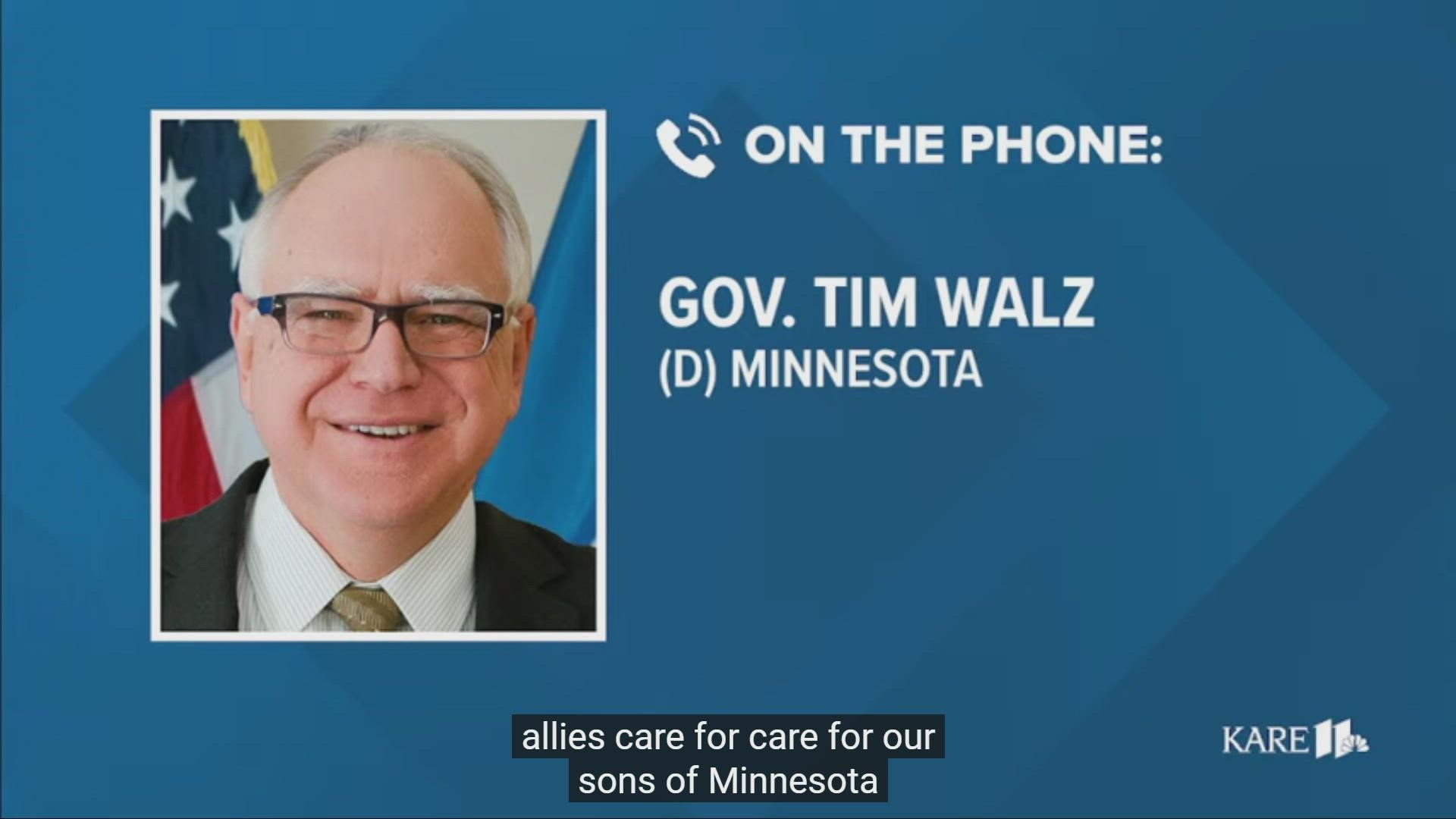As Minnesota hospitals feel the strain of the current COVID-19 surge, the federal government is sending dozens of medical personnel to help treat patients and support local staff.
Gov. Tim Walz announced Wednesday that with help from Sen. Amy Klobuchar his request for emergency staffing assistance was granted, and two Department of Defense medical teams of 22 people each will arrive at HCMC Minneapolis and St. Cloud Hospital next week.
Data released by the Minnesota Department of Health on Tuesday revealed 1,382 Minnesotans are currently hospitalized because of COVID-19, 320 of which are in the ICU. Statewide, only 46 ICU hospital beds are currently open. In the metro, just 17 non-ICU beds are available. If overflow facilities are able to accept patients who need transitional care, hospital beds open up for patients who need them more urgently.
“Hospitals around the state need urgent support, and my Administration is using every tool at our disposal to help them,” Governor Walz said in a statement. “The emergency staffing teams coming to HCMC and St. Cloud Hospital over the next few days will provide an important measure of relief to the healthcare personnel who remain on the frontline of this crisis."


Gov. Walz has also arranged to open bed space in long-term care facilities across the state to alleviate pressure on hospitals. Starting Monday, the governor's office said a third skilled-nursing facility will open for certain patients from Twin Cities hospitals that no longer need hospital-level care but aren't ready to go home.
Cerenity Senior Care-Marain in St. Paul will be able to take up to 27 patients and be staffed by nurses from federal partners, nursing assistants from the Minnesota National Guard and other private staffing vendors.
Currently, facilities in Shakopee and Brainerd are accepting transitional care patients to open up bed space at full and overburdened hospitals.
When pressed by reporters about whether he would re-assert his emergency powers as he did earlier in the pandemic, Walz said that decision was made before vaccines were widely available. The governor said the Republican-led Senate has made it clear there will be a high price if he decided to assert those powers again, pointing to threats of shutting down the government and firing his commissioners.
"If I don't have the lead person in charge of vaccinations when we're peaking (in cases), the lead person in charge of decompressing hospitals, the lead person in charge of testing at a time we need this," Walz said, referring to threats to oust his health commissioner Jan Malcolm, "that's the most serious threat to our response we can have. "
The governor maintains asserting emergency powers is not the key to turning back the rising tide of COVID cases, vaccinations are, especially children ages 5 to 11. The administration says 44,000 children from that age group have been vaccinated already, but that's just 10% of Minnesota's population of 5 to 11-year-olds.


